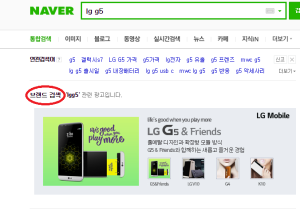Every year South Korea becomes more and more modern, but it is important to recognize as a foreigner possibly coming to work in Korea for the first time that modern does not equal Western. Koreans will not expect you to be a full expert on their culture, but they will appreciate a show of interest in cultural customs and etiquette that is important to the country. Koreans generally appreciate foreign business partners’ efforts in expressing basic words in the Korean language to show respect towards the country and culture. In this blog post we will be discussing Korea’s attitude towards business etiquette to provide help to those unfamiliar with the cultural differences.
1. Business cards
Business cards are a crucial part of business etiquette in South Korea and there is an important ritual to keep in mind when using them. Korean business cards are used learn about the name, position, and status of the other person and during business meetings, business cards are typically exchanged at the beginning of meetings and are given and received with both hands while standing to greet the other party. It is important that business cards are treated with utmost respect as it can be seen as very disrespectful to write on business cards in front of the giver, folding or creasing business cards or immediately putting cards away after receiving them. If you are a foreigner meeting Korean business partners it is encouraged that you create a lot of business cards to represent yourself, preferably translated into Korean on one side to aid communication.
2. Greetings
If you are visiting South Korea for the first time do not be surprised to see an emphasis on greeting etiquette more than in other countries. In Korea, slightly bowing is a normal salutation while keeping your hands straight at your side or folded in front of your stomach with your legs together. Your head should stay bowed, not looking upward and you should bow whenever saying hello or goodbye in addition to handshakes. Do not be surprised also to see that bowing can also be used as a way of showing an apology for even minor mistakes. When using handshakes in Korea, the more senior person should instigate the handshake and unlike in many Western countries, a strong handshake can come across as obnoxious and rude to many Koreans, so it is always better to use a softer handshake towards co-workers and business partners. Many South Koreans will opt to support their forearm with their other hand during handshakes to show good etiquette.
3. Business meetings and dinner outings
As socializing is central to business in South Korea, you will likely have meals out together as a company to strengthen bonds between parties. Food is a very important part of Korean culture, and it is important to know as a foreigner to Know what to expect and to be prepared for it. At traditional work meals people tend to sit on the floor and shoes are typically removed, so be prepared to have presentable, clean socks or feet. Korean work dinners are often a chance to experience a more relaxed approach to business meetings despite the presence of alcohol. At these types of events, alcohol will almost always be offered to you, and it is important to know that it is seen as disrespectful to refuse- though you are not obligated to consume all your drink if you do not wish to.
When attending a work meal in Korea it is also important to always abbey good table manners. Korea has very specific etiquette rules for work meals and although most Koreans wouldn’t expect foreign business partners to be aware of these customs, it is always ideal to show respect for the country you are in. Key things to remember are:
· To only pick up your own utensils after your seniors in title and age.
· The most senior person will be the first to eat and set the pace for the meal.
· Do not leave chopsticks sticking out of your rice or laid across your bowl as there are bad superstitions attached to these actions.
· Do not point at people with your chopsticks.
· Eat whatever someone puts on your plate and accept drinks poured for you.
· Tipping is not required for your meals in Korea.
· Pour others’ drinks rather than your own. If the person next to you has a half-full drink, you are obliged to refill it. If you refill your own, you may cause the person next to you to feel uncomfortable.
· Turn your face away to drink when drinking with someone senior to you to show your respect to them.
At business meals in Korea, it is important to observe whether there is room for a business discussion rather than seeing the evening as an extension of the working day. These meals are also a chance for an informal way of connecting business partners and creating stronger bonds across companies so insisting on only business-related topics might make other members of the party feel uncomfortable. It is also good to be aware that at work meals in Korea splitting the costs for food and drinks is often considered rude and often the host will pay for the meal entirely- though you should never automatically assume that this is the case!
4. Outside of work
Business and pleasure are often mixed in South Korean business culture depending on industry. Although regardless of industry, you will have to invest time into developing business relationships in Korea as personal relationships are central to successful Korean business. Koreans like to build business relationships or create bonds with co-workers through sports, drinking, karaoke and meals together in order to gain information about employee’s lives outside of work too. If you are attending an event with Korean co-workers it is better to not focus on business during a first meeting as the first meeting is for getting to know one another and to build trust between co-workers.
5. Other important things to remember:
· Much of South Korea has a basic English comprehension, but this is not an English-speaking country so you should always be mindful of how you choose to communicate.
· Much of Korean business takes place over the communication app ‘Kakao’ as it is faster and more comfortable for people to use instead of e-mails or phone calls.
· Gift giving is very common in Korea. Gifts are often given as tokens of the country and should be received with both hands to be polite.
· If invited to someone’s home, bring a small gift, like wine or flowers, for the host. Note that in Korea gifts are not typically opened in front of the giver to show respect.
· First names are rarely used except among very close friends. In order to show good etiquette people are addressed by their surname and job title- even outside of work.
Overall, it is always important to remember to observe the business etiquette of the country you are working in. Business in South Korea is very hierarchical, which should always be observed when meeting Korean business partners for successful meetings. As well as this, it is always crucial to be social and polite at company events as you never know who will be attending meetings. We hope that from this guide you can feel confident when knowing how to present yourself in the Korean workplace.







4 Responses
Korea Business Desk
South Korea, known for its dynamic economy, technological advancements, and vibrant culture, has emerged as a significant player in the global market. For businesses looking to expand their operations or explore new opportunities in this thriving market, the Korea Business Desk serves as an invaluable resource. This specialized service facilitates business interactions, provides market insights, and offers strategic support, helping companies navigate the complexities of entering and operating in South Korea. In this article, we will explore the functions, benefits, and key services offered by the Korea Business Desk.
Risk Advisory Services
Risk Advisory Services encompass a broad range of consulting services designed to help organizations manage risks effectively. These services are provided by risk advisors or consulting firms with expertise in various areas, including financial, operational, strategic, and compliance risks. The primary goal of Risk Advisory Services is to provide organizations with the insights and tools needed to navigate uncertainties and make informed decisions.